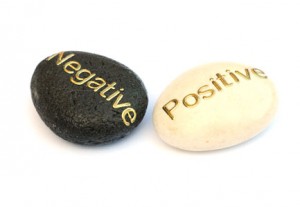 Reactionary disciplines are typically the arts, but some of them are interactive science, and many reactionary disciplines are merely so named because they involve a simple study of human reaction to different circumstances, particularly negatively viewed incidents, and how to react in a positive or productive way to the situation. Interestingly enough, reactionary disciplines have such a wide variety of definitions and perspectives because they are, in and of themselves, a volatile concept. Disciplines involve study, concentration, apprenticeship/master roles, continual learning, as well as approaches to different concepts. For example, a medical doctor must continually learn about new techniques and react with changing disciplines, thus making medicine and the practice thereof a reactionary discipline. By the same token, just about any type of art is considered to be a reactionary discipline, since it requires both subjective opinions of the artists and of the viewer in order to be fully appreciated. Workplace drug testing is the result needing an appropriate scientific reaction to employee drug abuse. Thus, drug screening was born.
Reactionary disciplines are typically the arts, but some of them are interactive science, and many reactionary disciplines are merely so named because they involve a simple study of human reaction to different circumstances, particularly negatively viewed incidents, and how to react in a positive or productive way to the situation. Interestingly enough, reactionary disciplines have such a wide variety of definitions and perspectives because they are, in and of themselves, a volatile concept. Disciplines involve study, concentration, apprenticeship/master roles, continual learning, as well as approaches to different concepts. For example, a medical doctor must continually learn about new techniques and react with changing disciplines, thus making medicine and the practice thereof a reactionary discipline. By the same token, just about any type of art is considered to be a reactionary discipline, since it requires both subjective opinions of the artists and of the viewer in order to be fully appreciated. Workplace drug testing is the result needing an appropriate scientific reaction to employee drug abuse. Thus, drug screening was born.
Another form of reactionary discipline is more psychological. This is where students are taught how to control themselves and their reactions when in unpleasant circumstances. Usually, this instruction is accompanied by practice rounds where scenarios are painted for the students, and then they are asked to react to a certain situation. They are given a chance to talk about how they would normally or typically react under those circumstances, and then they are given a setting or script by which to alter their behavior and thus help to alter their mentality. Through practice, behavior can be relearned, and habits can be reformed. In The Power of Habit by Charles DuHigg, he describes how habits can be altered by using the same cue and the same reward, but by just altering the routine in between the cue and the reward. This gives the individual power over their own life, and they become obsessed with a positive habit or attribute, rather than the previous negative attributes. When not altering bad habits, good habits can be created from nothing through the cue-routine-reward process described in the book.
Mediscreen provides onsite drug and alcohol screening for companies in Australia, and our methods help to instill a professional environment in your office space or jobsite. For more information on employee drug and alcohol testing, call Mediscreen today: (+61) 1300 79 70 40.


